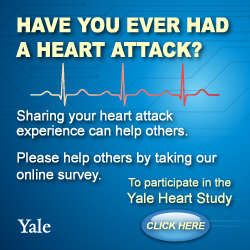by guest columnist Megan Parmenter

Fasting: "present participle of fast (v): To abstain from all or some kinds of food or drink, esp. as a religious observance."
When we eat, our bodies convert food into useable forms. Proteins are broken down into amino acids, fats into fatty acids, and complex sugars into simple sugars. The body uses these raw materials to give energy to all the cells, fight diseases, make repairs, protect organs, and grow. Put simply, food allows us to function.
When we don't eat (Ash Wednesday is a day known for fasting), our bodies still need fuel. They go into reserve-mode metabolizing fat stores for energy, instead of making and storing it.
What triggers the body to stop producing and start consuming fat?
Ask Harvard Researcher, Amy Walker, PhD. Walker and her colleagues discovered how enzymes function while shutting down fat and cholesterol. After conducting a series of experiments in worms, fruit flies, and mice, they found that SIRT1--an enzyme with several important roles in energy metabolism--inhibits the generation of fat and cholesterol by influencing a family of proteins called SREBPs. Since SREBPs are responsible for the body's synthesis and handling of fats and cholesterol, suppressing them inevitably lowers lipid and cholesterol levels.
Prior to this study, it was thought that the only way to increase SIRT1 activity was through dieting or fasting. Yet, when fed a high-fat diet, combined with an agent that increases SIRT1, genetically obese mice reduced the amount of fat stored in their livers. Because high-fat diets can increase one's risk for cardiovascular disease (CVD), type 2 diabetes, hypertension, and obesity, the effectiveness of SIRT1 in reducing the amount of fat stored in the body could change the way we treat metabolic disorders.
Eat fat and stay fit? Seriously?
Yes, according to Dr. Alan Goldhamer who explored the idea of fasting as a medicine. He is the director of the TrueNorth Health Center, one of only two in-patient facilities in the world that trains and certifies physicians in fasting specialization. Goldhamer and a team of physicians treated 174 hypertension patients with a water-only fasting regime. (Don't try this at home.) For an average of 10 to 11 days, patients survived only on water. They participated in "quiet activities" including reading, listening to music, watching instructional videos and, ironically, food preparation demonstrations and classes.
At the end of the fasting period, 90% of the patients achieved blood pressure less than 140/90mm Hg and patients previously taking medication for hypertension (6.3% of the total sample) discontinued its use. With an average reduction in systolic blood pressure (the "top" number) of -37 mm/hg, researchers now believe fasting may help reverse hypertension.
But is fasting beneficial if you don't have a metabolic disorder?
Theoretically, yes.
Studies have consistently found that Mormons have lower cardiac mortality than the general US population. Their low-risk status is often attributed to the fact that they don't drink, smoke, or eat meat in excess. Moreover, starting at age 8, they practice monthly fasting (refraining from two consecutive meals).
Contrary to popular thought, a study published in the American Journal of Cardiology found that fasting, independent of smoking status, plays a role in lowering CVD risk. Even after adjusting for traditional risk factors, results showed that 64% of self-reported fasters developed CVD, compared to 76% of non-fasters.
Although the difference between the two groups is significant, Horne admits it's difficult to determine whether fasting reduces risk or simply indicates a healthy lifestyle. Participants who fasted were also more likely to be non-smokers, infrequent drinkers, physically active, participate in religious worship, and observe a day of rest.
Unlike other factors, fasting has remained relatively unstudied. Dr. Benjamin Horne and colleagues found that fasting, independent of smoking status, plays a role in lowering CVD risk. Even after adjusting for traditional risk factors, results showed that 64% of self-reported fasters developed CVD, compared to 76% of non-fasters.
Although the difference between the two groups is significant, Horne admits it's difficult to determine whether fasting reduces risk or simply indicates a healthy lifestyle. Patients who fasted were also more likely to be non-smokers, infrequent drinkers, physically active, participate in religious worship, and observe a day of rest.
In addition to lowering blood pressure, lipid and cholesterol levels, fasting may 'cleanse' the body. Linda Page, ND, PhD, a naturopathic doctor, lecturer, and author of the book Detoxification, describes fasting as "a way you can jump-start your body for a more active life, a healthier life." Page's weekend juice-fast involves drinking something every 90 minutes to two hours. [You can try this at home.]
According to Page, the body releases petrochemicals--chemical products--built up in body fat.
Water (or juice) loading may also have some inadvertent benefits. A study published in the Journal of Diabetes Care recently reported that people who drink less than two glasses of water a day may be more likely to develop high blood sugar. Fasters may experience lower levels of blood sugar because of steady water consumption.
Though we don't know about all the health benefits of fasting, what we do know suggests that fasting may be effective in the prevention and reversal of cardiovascular disease. Whether you choose to fast or not, the key is moderation.
Stay thirsty my friends!
Photos via Getty.
---
Heart attack survivors, please click on this link and take the Yale Heart Study. If you haven't had a heart attack, click and forward to someone you love who has had a heart attack. Thank you.
Disclosure: Megan Parmenter is a Research Associate for the non-profit NIH-funded Yale Heart Study. Suzanne O'Malley will be back tomorrow.
For more by Suzanne O'Malley, click here.

